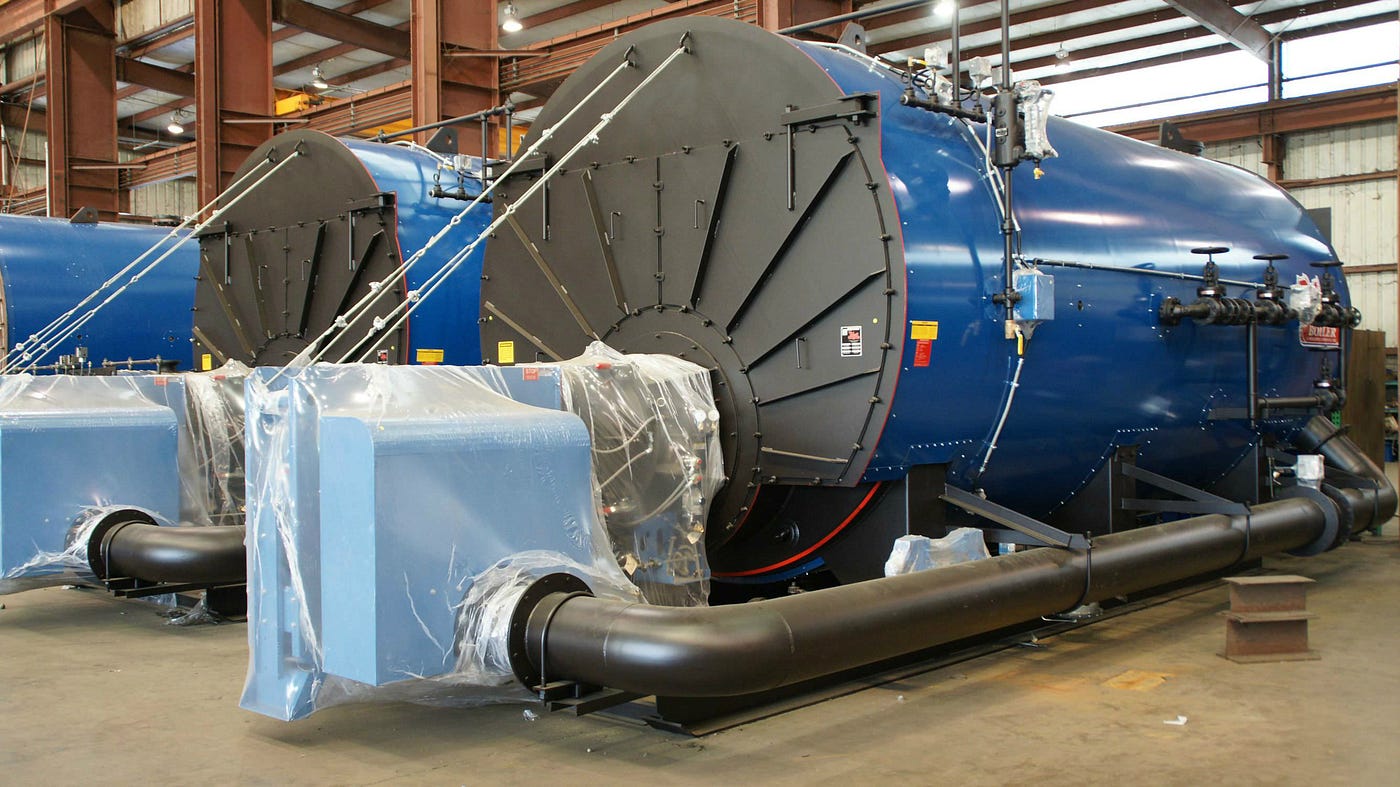Introduction
In today’s industrial landscape, boilers play a critical role in providing the necessary heat and steam for a wide range of applications. As industries evolve and demand more efficient, reliable, and environmentally friendly solutions, the design and technology behind boilers have also advanced significantly. Modern boilers are far more sophisticated than their predecessors, incorporating cutting-edge technology to improve performance, reduce emissions, and increase overall efficiency. This article explores the role of advanced technology in modern boiler design and how these innovations benefit industries worldwide.
The Evolution of Boiler Technology
Boilers have been around for centuries, but the technology used in their design has undergone tremendous changes over time. Early boilers were simple in design, often inefficient and prone to safety hazards. As industries grew and the demand for more reliable and efficient energy sources increased, so did the need for better boiler technology.
The introduction of advanced materials, improved manufacturing processes, and a deeper understanding of thermodynamics have all contributed to the evolution of boiler design. Today, modern boilers are highly engineered systems that incorporate a variety of advanced technologies to meet the stringent demands of contemporary industries.
Key Technological Advancements in Modern Boilers
Several technological advancements have revolutionized boiler design in recent years. These innovations have made boilers more efficient, safer, and environmentally friendly. Here are some of the most significant advancements:
Condensing Technology
One of the most important advancements in boiler design is the development of condensing technology. Traditional boilers lose a significant amount of heat through the flue gases, which are vented out of the system. Condensing boilers, on the other hand, are designed to capture and reuse this heat, significantly improving their efficiency.
Condensing boilers work by cooling the exhaust gases to the point where water vapor condenses, releasing latent heat that can be used to preheat the incoming water. This process reduces the amount of fuel needed to achieve the desired temperature, resulting in energy savings and lower greenhouse gas emissions. Condensing technology has become a standard feature in many modern boilers, making them an excellent choice for industries looking to reduce their energy consumption.
Advanced Control Systems
Modern boilers are equipped with sophisticated control systems that allow for precise monitoring and management of the boiler’s operation. These control systems use sensors and algorithms to continuously monitor various parameters, such as temperature, pressure, and fuel flow, ensuring that the boiler operates at optimal efficiency.
Advanced control systems can also detect potential issues before they become serious problems, allowing for proactive maintenance and reducing the risk of unexpected downtime. Additionally, these systems can be integrated with building management systems, providing real-time data and remote access to the boiler’s performance, making it easier for operators to manage their energy usage.
Improved Materials and Construction
The materials used in boiler construction have a significant impact on their performance, longevity, and safety. Modern boilers are built using high-quality materials that can withstand extreme temperatures and pressures, ensuring that they operate safely and reliably.
One of the key materials used in modern boiler design is stainless steel, which offers excellent corrosion resistance and durability. This is particularly important in condensing boilers, where the acidic condensate can cause corrosion in less resistant materials. The use of advanced welding techniques and precision manufacturing processes also contributes to the overall quality and reliability of modern boilers.
Enhanced Insulation and Heat Recovery Systems
Insulation plays a critical role in the efficiency of a boiler. Poorly insulated boilers lose a significant amount of heat, reducing their overall efficiency. Modern boilers feature enhanced insulation materials that minimize heat loss, ensuring that more of the energy generated by the boiler is used for its intended purpose.
In addition to better insulation, modern boilers often incorporate heat recovery systems, such as economizers, which capture waste heat from the boiler’s exhaust gases and use it to preheat the feedwater. This reduces the amount of fuel required to heat the water, further improving the boiler’s efficiency and reducing its environmental impact.
Low NOx Burners
Nitrogen oxides (NOx) are harmful pollutants that contribute to smog and acid rain. Traditional boilers can produce significant amounts of NOx, especially when operating at high temperatures. To address this issue, modern boilers are equipped with low NOx burners, which are designed to reduce the formation of these pollutants.
Low NOx burners achieve this by controlling the combustion process more precisely, using techniques such as staged combustion, flue gas recirculation, and advanced mixing of air and fuel. This results in lower flame temperatures and reduced NOx emissions, helping industries comply with increasingly strict environmental regulations.
The Benefits of Advanced Boiler Technology
The incorporation of advanced technology in modern boiler design offers numerous benefits for industries. These benefits go beyond just improved efficiency and reduced emissions; they also include enhanced safety, reliability, and ease of operation. Here’s how:
Increased Efficiency
One of the most significant benefits of advanced boiler technology is increased efficiency. By capturing and reusing waste heat, improving insulation, and optimizing the combustion process, modern boilers use less fuel to produce the same amount of heat or steam. This not only reduces operating costs but also helps conserve valuable energy resources.
Enhanced Safety
Safety is a top priority in any industrial setting, and modern boilers are designed with safety in mind. The use of high-quality materials, advanced control systems, and precise construction techniques ensures that modern boilers can operate safely under the most demanding conditions. Additionally, features such as low NOx burners and improved ventilation systems help reduce the risk of hazardous emissions.
Reduced Environmental Impact
As industries strive to reduce their environmental footprint, the role of advanced boiler technology becomes increasingly important. Modern boilers are designed to minimize emissions of harmful pollutants, such as NOx and CO2, while maximizing energy efficiency. This helps industries meet environmental regulations and contribute to global efforts to combat climate change.
Lower Operating Costs
By improving efficiency and reducing the need for frequent maintenance, modern boilers can significantly lower operating costs. The initial investment in a modern, technologically advanced boiler is often offset by the long-term savings in fuel costs, maintenance, and downtime. This makes advanced boilers a cost-effective solution for industries looking to optimize their operations.
Improved Reliability and Longevity
The use of high-quality materials and advanced construction techniques ensures that modern boilers are more reliable and have a longer lifespan than older models. This means fewer breakdowns, less downtime, and a longer period before a replacement is needed. For industries that rely heavily on their boilers, this increased reliability is a significant advantage.
EPCB Boilers: Leading the Way in Modern Boiler Design
EPCB Boilers, a renowned name in the industrial boiler industry, is at the forefront of integrating advanced technology into boiler design. With a commitment to quality, safety, and efficiency, EPCB Boilers offers a range of products that incorporate the latest technological advancements. From condensing technology to advanced control systems, EPCB Boilers are designed to meet the highest standards of performance and reliability.
Whether you’re in need of a coal-fired boiler, a biomass boiler, or an oil and gas boiler, EPCB Boilers provides solutions that are both environmentally friendly and energy-efficient. With a strong focus on innovation, EPCB Boilers ensures that each product is built to deliver exceptional performance while reducing the environmental impact.
Conclusion
The role of advanced technology in modern boiler design cannot be overstated. As industries continue to evolve, the demand for more efficient, reliable, and environmentally friendly solutions will only increase. By investing in a modern boiler that incorporates the latest technological advancements, such as those offered by EPCB Boilers, industries can enjoy the benefits of increased efficiency, enhanced safety, and reduced operating costs, all while minimizing their environmental footprint. In an era where sustainability and efficiency are paramount, advanced boiler technology is not just a luxury—it’s a necessity.
Keep an eye for more news & updates on Gossips.Blog!




